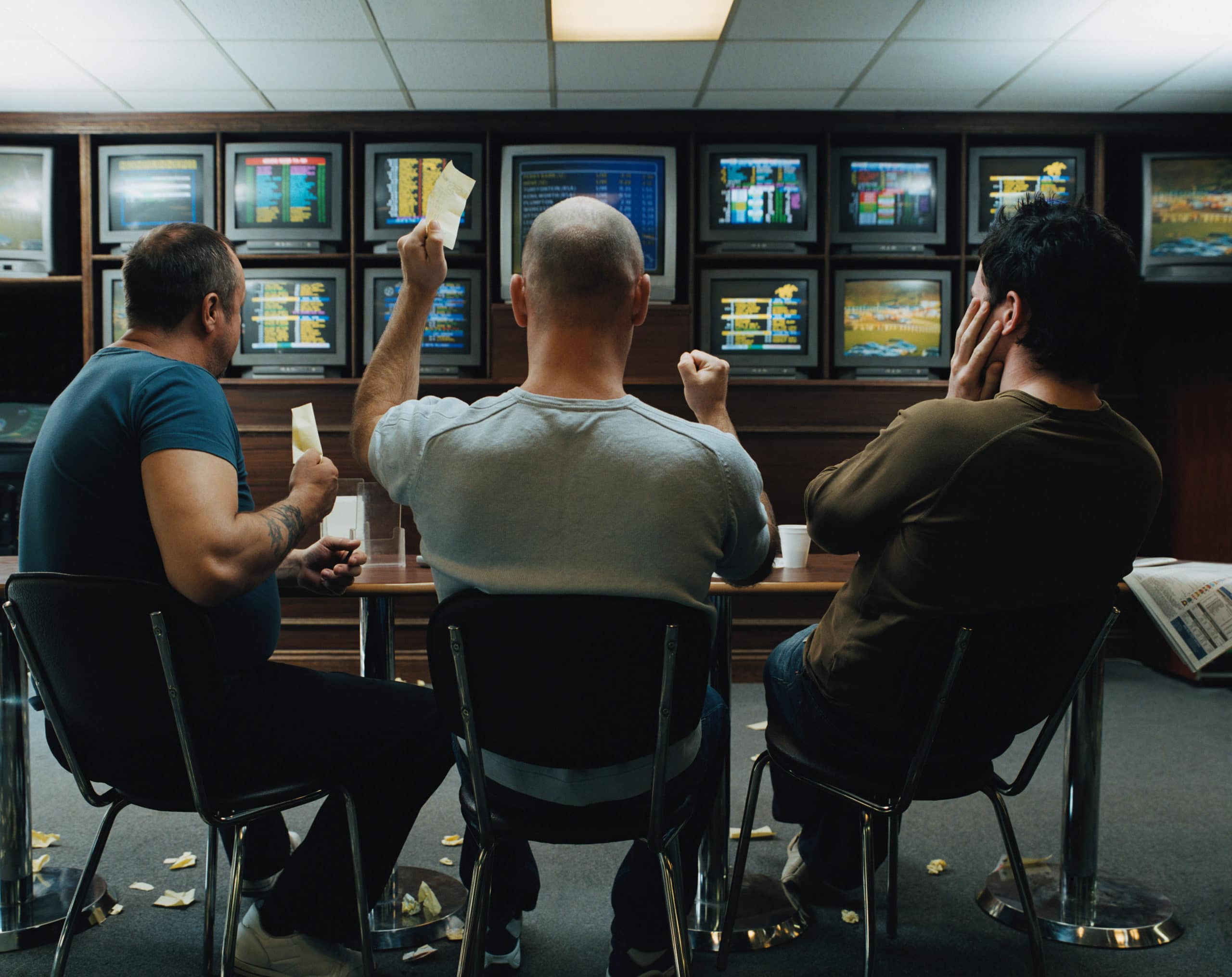With online gambling now legal in 25 states, the 2021 NCAA tournament will be a slam dunk for gaming sites—and the friendly office pool may never rebound.
By Will Yakowicz, Forbes Staff
Bob, a 34-year-old gambler from Illinois who works in logistics, has bet in his office March Madness pool for the last five years. With about 75 colleagues and a $25 buy-in, the pot will be just under $2,000 for this year’s NCAA men’s basketball tournament—but he’s not filling out a bracket.
For gamblers, the office pool has lost its luster. “It’s boring—I’d rather gamble other ways,” says Bob, who did not want to give his last name. “For Betty Sue, who runs the front desk, does she like the office bracket? Of course, she does; she’s not a gambler.”
March Madness is always big action for Bob, who says he lays out about 25% of his annual $20,000 bankroll during the three-week long, a single-elimination, seven-round college basketball tournament. This year, he’s placing bets on mobile betting services like DraftKings and Barstool Sports. Bob will also wager with his go-to bookie, a longstanding relationship he has decided to keep despite his access to legal options.
He is not alone. According to a study published by the American Gaming Association this week, the number of Americans—36.7 million—filling out a bracket is down 8% compared to the last NCAA Tournament in 2019. (March Madness was cancelled in 2020 due to the Covid-19 outbreak.) About 31 million Americans are placing more traditional bets on this year’s tournament, up from nearly 18 million in 2019.
“Brackets bring in about $2 million,” says DraftKing’s Johnny Avello. “I can’t tell you what March Madness will bring, but it will be exponentially bigger.”
Bill Miller, the president and CEO of the American Gaming Association says that the number of people betting online this year is up more than 200% from 2019. About 18 million people will bet online while 8 million will bet in-person at a sportsbook. Miller says the dramatic increase in online betting is thanks to the fact that 13 new legal sports betting markets have opened up since the 2019 tournament, bringing the total to 25 states (and Washington, D.C. ) that have legalized sports betting, with 21 markets operational. By population, 45% of American adults now live in a state with legalized sports betting.
“We have seen a massive increase in legal sports betting,” says Miller. “States recognized that people have been betting on sports since there’s been sports to bet on.”
“There is a migration from the illegal market to the legal market,” he continues, “and there is excitement and pent up demand for March Madness and the opportunity for people to bet legally and safely has never been better.”
While the number of Americans placing bets this year—47 million—is expected to stay flat from 2019, wagers are expected to break the 2019 record of $8.5 billion.
At DraftKings, the proliferation of online sports gambling made company cofounder and CEO Jason Robins a billionaire earlier this year. DraftKings, which was founded in 2012, has been on a tear since the company went public through a reverse merger last April—its stock price jumped has 260%. The company recently reported impressive $322 million in revenue, a 146% increase from $131 million in the prior year, and also reported that monthly users have risen by 500,000 to 1.5 million from the previous quarter.
March Madness should only add to that winning streak.
“It will be the biggest ever,” says Johnny Avello, DraftKings’ head of race and sportsbook. “We sorely missed the tournament last year. We saw intense action when we put the lines up on Sunday. But forget the fact that we missed the tournament last year, the growth from 2019 to 2021 in sports betting across the U.S. has increased dramatically. There are more users, more states on board, and more offerings.”
To keep with tradition, DraftKings is offering brackets. About 20,000 people will pay $100 to enter and the winner will get $1 million. DraftKings is also hosting free-to-play survivor pools in all states, including jurisdictions where sports betting is not legal, with a $1 million first prize.
But Avello says these contests are peanuts compared with more traditional betting, player proposition bets, and in-game wagering. “Brackets bring in about $2 million. I can’t tell you what March Madness will bring, but it will be exponentially bigger,” says Avello. “It’s the biggest event of the year, bigger than the Super Bowl.”
John Murray, director of the Westgate sports book in Las Vegas, is equally optimistic. He says all signs point to the fact that sports betting, and March Madness, has roared back to life this year.
“We set a handle record in January and in February—the highest handles we’ve ever had twice just this year,” says Murray. “I see no reason at all that we won’t have a huge March Madness.”
Murray says the spike in business is due to mobile betting. About 80% of the Westgate’s business is from wagers made on a smartphone. “The mobile phone is the answer,” says Murray.
The crowd at the Westgate is not back to pre-pandemic levels, mostly due to Covid-related capacity restrictions, but the sportsbook’s volume has already surpassed 2019. “Handle-wise, we’ve already exceeded pre-pandemic levels,” says Murray. “We’re already there—I’m confident this weekend will be huge.”
Miller of the American Gaming Association also sees the rebound in the number of people betting on sports as a lucky sign. “I think March Madness is an important indicator that the post-pandemic world is coming back to a good place,” he says. “March Madness, the opening of spring training in baseball, Opening Day around the corner, these are indicators that the economy and the American psyche are moving forward. March Madness is a signal that life is returning to normal.”
